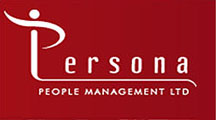Interpersonal relationships, as with any form of human interaction, can be both positive and negative. In their personal lives, employees can simply choose to not to socialise with those who they do not get along with, but this is neither professional nor productive in the work environment. When relationships at work break down, there can be far reaching consequences for the individuals involved, their team, and the organisation as a whole. Tackling team dynamics in a productive and effective way is a key part of any management activity. When a team is not working cohesively, fixing the problem can take a vast amount of time and effort, which could be directed more productively towards other business activities.
Empowering individuals and teams to work towards identifying problems, and devising ways to achieve both immediate and sustained improvements can more effectively remedy what is often considered a huge management problem.
Numerous writers on change management point to the benefits of this bottom-up approach. By allowing employees to tackle and own the change process you can ensure a greater likelihood of identifying issues, higher levels of motivation and development of the skills required to solve problems in the future.
Key factors in improving the group dynamic:
-
What is the nature and style of communication within the group? Look for both overt and covert forms of communication.
-
What are the different roles within the group? Help each individual understand their role and find ways of working that satisfy their personal needs whilst still working to accomplish business goals.
-
How does the group typically make decisions? Help the group identify problems and suggest alternatives to enhance the group dynamic and ensure they are working cohesively.
-
What are the group norms and behaviors both good and bad? Assist them in recognizing what behaviors are helpful, suggest alternatives and assist them in how to direct their shared resources to best effect.
We can help you to help your teams to help themselves. We have a range of techniques and the experience to assist individuals and teams uncover problems, develop interventions and support change for the long term.
On Wednesday 22nd February we are holding our first Organisation Development clinic. Bring along actual problems and issues you are experiencing with your employees, and we will assist you in helping them to help themselves with some useful advice and guidance. This unique event is taking place at Brook Street Des Roche, 25 Milton Park, Nr Abingdon from 9.30am to 12.30pm and includes refreshments and a light lunch. For more information and to book your place please contact me on 0870 066 0844.
|



